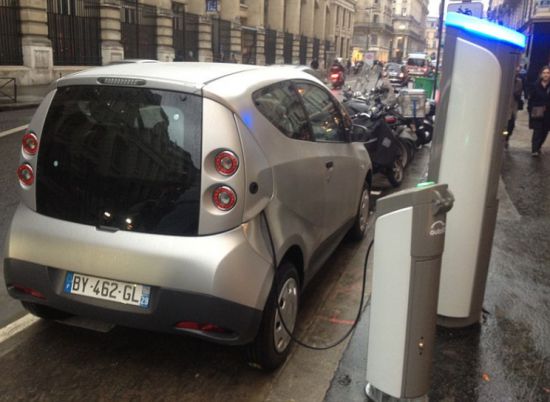Recently two projects have been launched by the Spanish National Agency INNPACTO in 2011. Their aim is to take advantage of the kinetic energy recovered during braking of trains and metros for charging electric cars. Project ‘Train2Car” has been led by the company “Metro de Madrid” in collaboration with other partners, notably, University Pontificia de Comillas, Siemens and Citroen etc. The project aims to install a test charging station for electric cars on one of the train stations. Earlier a similar project was done by the company ADIF (Administrador de Infraestructuras Ferroviarias) which manages the Spanish rail network, in association with Universities of Seville and Mallaga, and Andalusian Institute Of Technology.
Both these projects aime to used Regenerative Braking to recover the Kinetic energy of trains during the braking and convert it into electrical energy and then store it in accumulators. This energy is then reinjected to trains which were starting and require high current. Thus, energy is economised. In this way AIDF calculates that it is able to recover 44.6% of 3067 GWh energy given by Spanish electric company to run the trains.
Nevertheless, a significant part of the energy recovered, approximately 600 GWh year, is not re-used due to lack of final consumer. That is why, the ADIF has launched a project to find a use for this stock of electricity. After the first phase of the project, a charging station for electric cars was installed in a train station of Malaga named as Maria Zambrano. The last phase involved the development of a hybrid storage system using lithium-ion batteries and supercapacitors for quick recharging. “Train2Car” project, for metro of Madrid had a similar challenge: both cases involved modeling a complex system that must balance supply to electrical trains and electrical cars as a function of variable traffic loads. Charging Terminal installed at the “Sainz de Baranda” station in Madrid is open from 8:00 to 21:00 on weekdays, should allow to test this model. It provides 50 kW of power in DC with the charging time of 20 minutes.
